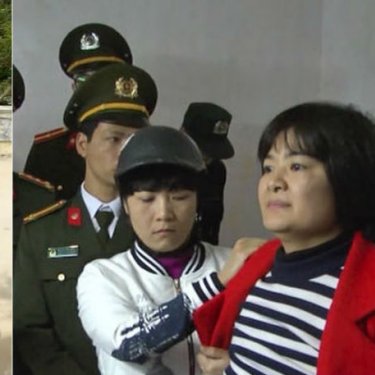RSF decries arrests of three activist bloggers in Vietnam

Reporters Without Borders condemns the “preventive” arrests of three bloggers and citizen journalists in the past few days in the run-up to the Vietnamese New Year, known as the Tet, and calls for their immediate release and the withdrawal of all charges against them.
The latest victim is Tran Thi Nga, a blogger also known as Thuy Nga, who was arrested at her home in the northern province of Ha Nam on 21 January. The mother of two children, Nga uses her blog to defend migrant workers and those whose land has been seized by the authorities.
Accused of posting “anti-state” content online, she has been charged under article 88 of the penal code, which provides for sentences of three to 20 years in prison for “propaganda against the Socialist Republic of Vietnam.”
Nguyen Van Oai, a citizen journalist who has been jailed in the past, was arrested on 19 January in the central province of Nghe An for allegedly resisting police officers and for leaving his home while on probation.
Arrested in 2011 and sentenced to four years in prison plus three years of home surveillance under penal code article 79 (penalizing “activities aimed at overthrowing the people’s administration”), Oai was released in August 2015 on completing the jail term. Articles 79 and 88 are the two that are most often used to gag bloggers and online activists.
Citizen journalist Nguyen Van Hoa, who was working for Radio Free Asia's Vietnamese service, was held incommunicado for more than a week after his arrest on 11 January, with the result that his family learned only two days ago that he is in the regime’s custody and has been charged under article 258, which punishes “abusing democratic freedoms to infringe upon the interests of the state.”
Hoa recently covered protests against Formosa Ha Tinh Steel, a Taiwanese-owned steel plant responsible for a toxic spill that caused the deaths of thousands of tons of fish in April 2016.
“This wave of arrests ahead of the Vietnamese New Year celebrations betrays the state of tension within the regime whenever civil society has an opportunity to express itself freely about violations of its rights and human rights in general,” said Benjamin Ismaïl, the head of RSF’s Asia-Pacific desk.
“These bloggers and citizen journalists did nothing more than cover protests and express views about violations of the rights of their fellow citizens. In other words, they defended the general interest. However, it is terrible to see that defence of the general interest and human rights is branded as anti-state propaganda in Vietnam. We ask the international community to press for their immediate release.”
As well as harassing, threatening and physically attacking outspoken bloggers and their loved-ones, the Vietnamese Communist Party also readily resorts to preventive arrests ¬– arrests often amounting to enforced disappearances – in order to silence its critics in the run-up to national events.
Last October, RSF condemned the Vietnamese government’s policy of isolating journalists and bloggers and its systematic reprisals against those who dare to get in touch with the outside world.
Vietnam is ranked 175th out of 180 countries in RSF’s 2016 World Press Freedom Index.



